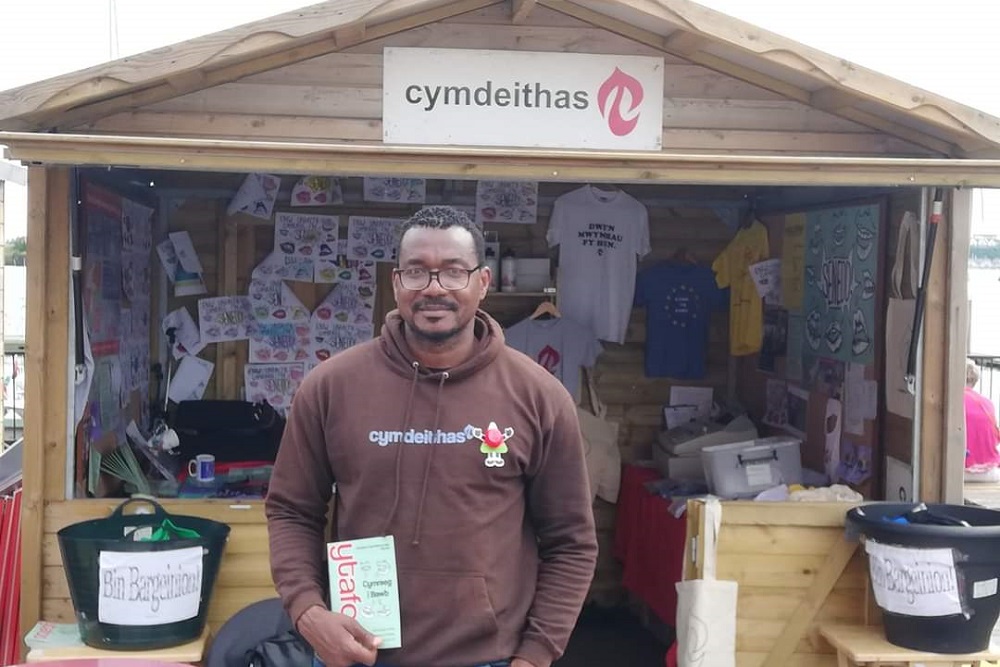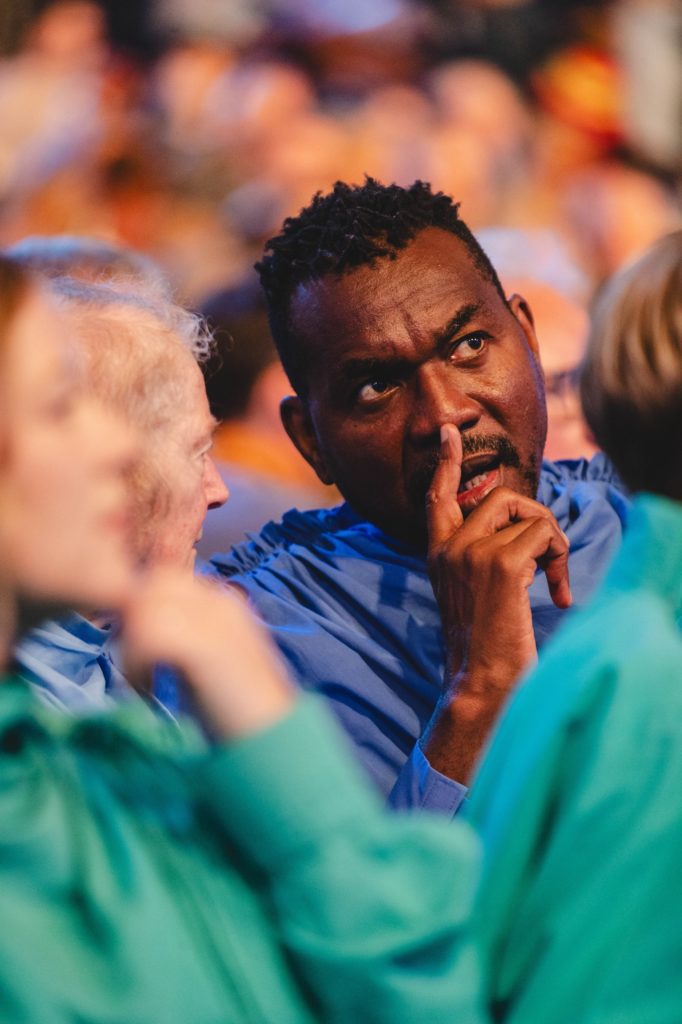Joseff Gnagbo becomes first refugee to stand for Senedd

Stephen Price
Joseff Gnagbo who sought asylum from the Ivory Coast and settled in Cardiff six years ago, has become the first refugee to stand for the Senedd.
He will stand for the seat of the newly established Caerdydd Ffynnon Taf in the Senedd elections next year, representing the community he has been a part of since his arrival in Wales.
A new Welsh speaker who works as a Welsh tutor and carer, Gnagbo was inducted into the Gorsedd in a prestigious ceremony at the National Eisteddfod Rhondda Cynon Taf in 2024.
Gnagbo was re-elected as Chair of Cymdeithas yr Iaith, the leading advocacy group for Welsh language rights, during its General Meeting in October 2024.
Gnagbo, who took the helm of the organisation in 2023, will continue his leadership into a second term, pledging to continue championing Welsh language rights, and focusing on the ongoing campaigns that lay at the heart of the movement’s mission.
Gorsedd Cymru, or simply the Gorsedd, is a society of Welsh-language poets, writers, musicians and others who have contributed to the Welsh language and to public life in Wales.
Joseff shared: “I arrived in Wales knowing nothing about the language or the Eisteddfod.
“I have been to the Eisteddfod several times since arriving in Wales and I am very proud to become a member of the Gorsedd.
“I feel very much a part of the Welsh community.”
Announcement
Sharing the announcement via his Facebook, Joseff said: “My name is Joseff Gnagbo. I stand before you today because I believe Wales needs a new kind of leadership—one that understands our communities, stands up for our language, and refuses to accept second-class treatment from Westminster.
“I know what it means to build a home here in Wales. I have learned Welsh, fought for our language, and worked in our communities to strengthen our national identity. Now, I want to take that fight to the Senedd—to make sure the people of Caerdydd Ffynnon Taf have a strong voice in shaping their future.”
He continued: “People are struggling. The cost of living is out of control. Our health services are under pressure like never before. Westminster’s failures are making things worse, and it’s clear that Wales needs more power to act in its own interests.
“Plaid Cymru has always believed in a self-sufficient, socially just Wales. That vision must now take shape—not just as a dream for independence, but as a practical plan for more autonomy now. We need the power to invest in our economy, build fairer communities, and form stronger international partnerships that work for us, not just for London.
“I am asking for your support to be the voice that represents this vision—a voice that fights for a fair economy, a strong health system, and a self-reliant Wales. Together, we can make sure that this community, and our nation, gets the future it deserves.
“Diolch yn fawr.”
Cymdeithas
Reflecting on his first year as Chair of Cymdeithas, Gnagbo highlighted the strides made by the organisation but emphasised the continued need for action: “We have built a great deal, but we must build further.”
In his statement, he stressed that Cymdeithas yr Iaith has made significant progress on several fronts, including its push for a Property Act to protect Welsh-speaking communities and its ongoing campaign for a Welsh-Medium Education Act for All.

Under his leadership, the organisation has consistently championed policy reforms aimed at bolstering the rights and visibility of the Welsh language across all sectors of Welsh society.
The past year also saw the group raising awareness on local and national levels, holding institutions accountable, and advocating for changes that would secure the future of the language.
Struggle
Whilst still holding the position of Chair, Gnagbo hopes to expand the reach of Cymdeithas yr Iaith’s campaigns and reinforce existing partnerships.
He has stated that the struggle for linguistic justice is far from over, and much remains to be done to protect Welsh-speaking communities from the challenges posed by housing crises and education gaps.
Cymdeithas yr Iaith has long been known for its direct action campaigns, stretching back to its founding in 1962. Potentially established as a response to Saunders Lewis’s radio lecture Tynged yr Iaith (“The Fate of the Language”), the society has consistently fought for the survival and prosperity of the Welsh language.
From sit-ins in the 1960s, the society claims an instrumental role in securing bilingual road signs and the creation of the Welsh-language TV channel S4C in the 1980s, the group has remained a steadfast advocate for linguistic equality.
Over the decades, it has waged campaigns resulting in important milestones like the Welsh Language Act 1993 and the establishment of Coleg Cymraeg Cenedlaethol, a higher education institution for Welsh-medium learning.
Support our Nation today
For the price of a cup of coffee a month you can help us create an independent, not-for-profit, national news service for the people of Wales, by the people of Wales.






Top man. Sets the standard that new arrivals can aspire to reach regardless of what they left behind. Perversely, integration seems to be easier for those who escaped a “sh*tshow” than for those who migrate in comfort. Boys and girls arriving from other side of Offa’s Dyke should take note.
It’s a really good job that no one from Reform or the Tories share this gentleman’s values, they might get a look in at getting a vote or two.
More news like this needed!